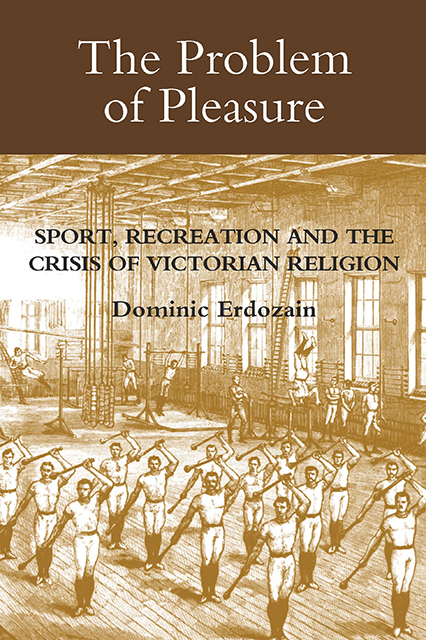Book contents
- Frontmatter
- Contents
- List of Illustrations
- Acknowledgements
- Abbreviations and Note on Conventions
- Introduction
- 1 ‘Born Free and Everywhere in Chains’: Evangelicalism and the Problem of Pleasure
- 2 Romanticism With Boots on: The Virtues of Sport
- 3 Renegotiating the Secular: The Coming of Recreation to the Mid-Victorian Religious World
- 4 ‘We are all Cyclists Now’: Applying the Pleasure Principle
- 5 Sport and the Secularisation of Late-Victorian Youth Ministry
- 6 Contesting the Sacred: The Late-Victorian Church and the ‘Gospel of Amusement’
- Conclusion
- Bibliography
- Index
4 - ‘We are all Cyclists Now’: Applying the Pleasure Principle
Published online by Cambridge University Press: 02 March 2023
- Frontmatter
- Contents
- List of Illustrations
- Acknowledgements
- Abbreviations and Note on Conventions
- Introduction
- 1 ‘Born Free and Everywhere in Chains’: Evangelicalism and the Problem of Pleasure
- 2 Romanticism With Boots on: The Virtues of Sport
- 3 Renegotiating the Secular: The Coming of Recreation to the Mid-Victorian Religious World
- 4 ‘We are all Cyclists Now’: Applying the Pleasure Principle
- 5 Sport and the Secularisation of Late-Victorian Youth Ministry
- 6 Contesting the Sacred: The Late-Victorian Church and the ‘Gospel of Amusement’
- Conclusion
- Bibliography
- Index
Summary
Superficial as pleasure is, it occupies a very large and prominent part in life. Men will do for pleasure what nothing else under heaven could prevail upon them to attempt. See the athletic youths grinding their bicycles up a steep hill till the machines groan under the desperate and painful effort. If requested by their employers to work with half this zeal and persistence, they would promptly and indignantly resign. … It is hardly an exaggeration to say that the man who writes a popular song exerts a greater power than the man who produces a thousand sermons. …It is time that the Church took her part in providing rational pleasures for the people.
(Frederick Atkins, First Battles, and How to Fight Them (1891), 58)
When Kingsley first made a connection between sport and spirituality, the challenge to the mid-century consensus was palpable. ‘Certainly nothing’, wrote T.C. Sandars in the Saturday Review, ‘can give a stronger notion of the rapid changes which take place in public opinion than to find that original black beast, the hunting parson, held up as the truest type of earthly and saintly excellence.’ It had not been long since the first wave of Evangelical prelates had broken such traditions, raising the requirements for ordination to put an end to practices like clerical fox-hunting. Such zeal had ‘wrought a complete change in the preaching and character of the English clergy’. The clergy's refinement was one symbol of a civilising mission that had expunged such vestiges of aristocratic decadence as duelling, popular addictions such as street football, and ‘brutal exhibitions’ dear to high and low such as prize fights.
But, as we have seen, no sooner had the religious world enjoyed its hour of victory with the Sabbatarian ‘triumphs’ of the 1850s, than the problem of leisure re-asserted itself. A quiet Sabbath was not a sober Sabbath; a quiescent working population was anything but a Christian one. In the 1860s and 1870s, Christians also perceived that their own offspring were uneasy with those ‘traditions of the elders’ that pressed so hard upon human freedom and mocked their theology of grace. So it was with pride and relief that a consensus of legitimate secular engagement developed that could marry the mid-century's ‘boundary blurring’ creativity to a cross-centred ‘salvation economy’. The previous chapter could be summarised as, ‘Why should the muscular Christians have all the good tunes?’
- Type
- Chapter
- Information
- The Problem of PleasureSport, Recreation and the Crisis of Victorian Religion, pp. 154 - 198Publisher: Boydell & BrewerPrint publication year: 2010



